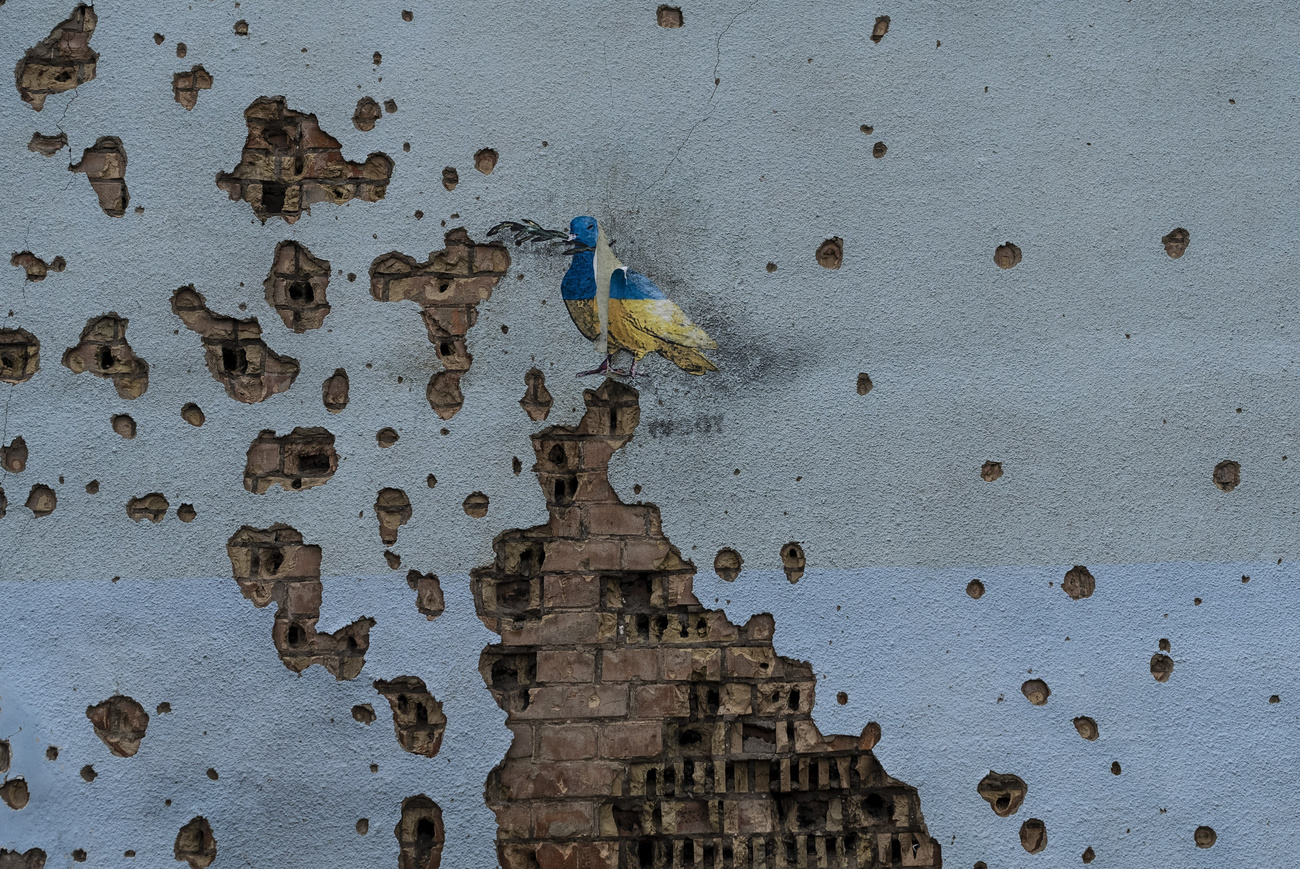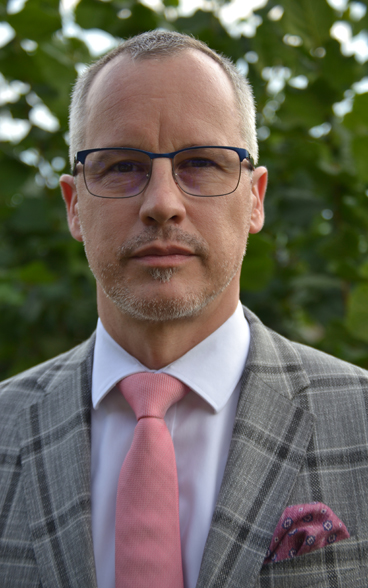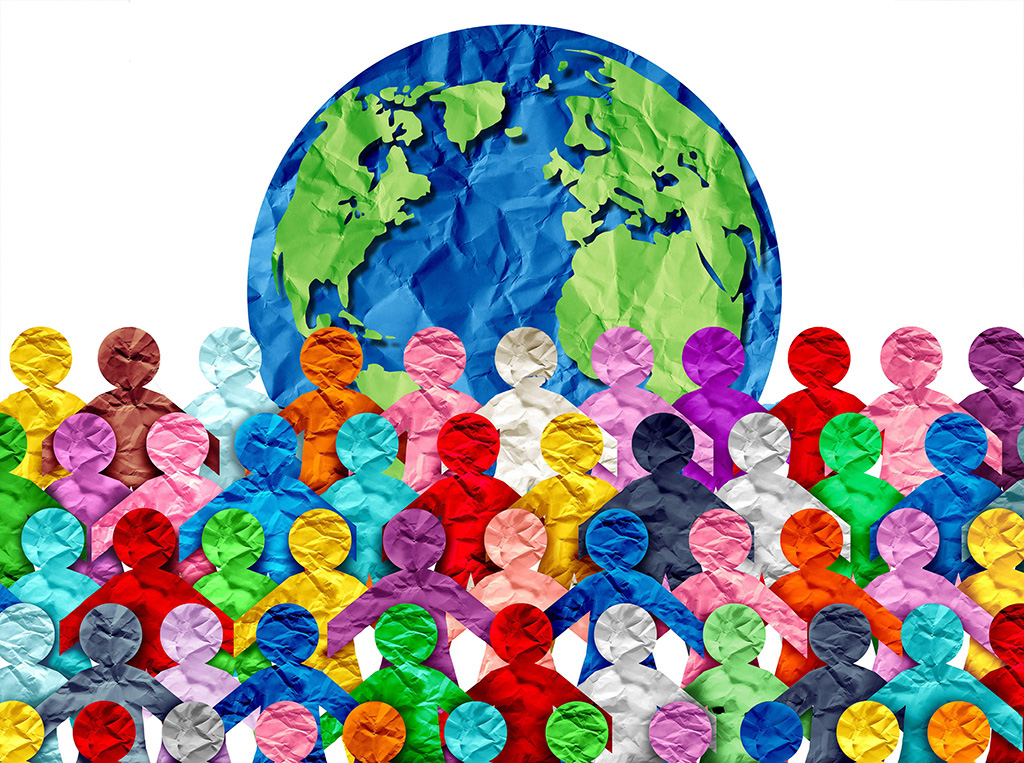
Swiss democracy official: ‘the goal is to push a more positive narrative’

Switzerland has a constitutional mandate to promote democracy around the world. Simon Geissbühler from the foreign ministry talks about the challenges to this at a time of global democratic regression.
Last week, the International IDEA intergovernmental organisation published its annual reviewExternal link, announcing more autocratic advances and making glum reading for democracy fans around the world. In Switzerland, coincidentally, the past week also saw the publication of a new book, Democracy and Democracy Promotion in a Fractured World, edited by Simon Geissbühler, the head of the Swiss foreign ministry’s Peace and Human Rights Division.
SWI swissinfo.ch spoke to Geissbühler at the book’s launchExternal link in Bern.
SWI: Democracy across the world has been having a hard time for years. Is it safe to say the same is true for democracy promotion?
Simon Geissbühler: Well, the fact that there are now a lot of backsliding democracies is also a chance for democracy support efforts. But the approach has to be adapted; it’s not about trying to bring democracy to non-democratic countries. While support via development cooperation or election missions continues, one new approach is the idea of fostering “democratic resilience”: that is, supporting existing democracies which are coming under external or internal pressure.
Take Ukraine, for example: how can it be helped right now – at a time of acute stress – to keep democratic elements like freedom of expression, participation and a lively civil society alive? The tendency during a war is obviously to bunker down and centralise, but it’s important to try to ensure democratic and civil society progress isn’t wiped out. For Switzerland, engagement with countries like Botswana or Ghana – also democracies coming under a certain pressure – is also a new avenue of approach.

SWI: How can democracy promotion policies compete with large-scale anti-democratic misinformation campaigns coming out of states like Russia?
S.G.: Inside Russia itself there’s very little we can do, because the space is so closed. As regards efforts to undermine democracy abroad, this is also difficult, since we’re not used to going into counter-attack mode. As I said, it’s more about supporting democracies that are coming under pressure. Economic support and development aid is important here, since to be credible, these countries have to deliver for their populations.
For Switzerland, as well as promoting the idea of democratic resilience, the goal in the coming years will also be to push more for a positive narrative and to talk more forcefully about the positive sides of democracy – at a time when even within democracies it’s fashionable to talk them down. We also want to take an approach based on partnership rather than preaching, and to learn from other countries rather than just teach them what we know.

More
The radical democrats in the desert
SWI: Is it all doom and gloom for democracy support efforts?
S.G.: The main focus of democracy promotion in the early 1990s and 2000s – Central and Eastern Europe – is a success story, in a way. There are some problems in some states, but even a country like Ukraine, which is not perfect, has seen power transfers, a vibrant civil society and a free press. Maybe democracy would have happened in this region anyway, because these countries were in a good position to transition to it, but either way it was a success.
SWI: It’s over a decade since the Arab Spring led to hopes for a wave of democratisation in the Middle East and North Africa. What happened?
S.G.: At the start, the Arab Spring movements were sparked not from the outside but from within, which is a key element for democracy development – it has to be homegrown, not imposed. The internal trigger that started the Arab Spring also underlined the deep desire for democracy around the world – even if it’s not labelled as such, and rather comes out as a desire for participation, accountability and basic freedoms.
As for why they failed, I can’t say too much as a Swiss diplomat! Some say we [Western democracies] were not coherent in our response; we supported the changes, but perhaps not as whole-heartedly or unconditionally as we could have. But ultimately, just as the Arab Spring was triggered from inside, internal forces also ended up proving stronger. It’s very difficult to draw direct lessons. I think we still don’t fully understand the dynamics in Tunisia or Egypt.

More
In pursuit of the unattainable ideal of democracy
SWI: To what extent is the promotion of direct democracy – popular votes and referendums – part of Swiss efforts abroad?
S.G.: Swiss direct democracy is quite unique, in a way it’s the core of what we could call Swiss democratic exceptionalism. This is something we don’t try to export as a model to copy-paste elsewhere. That said, young people abroad are especially interested in the participatory nature of Swiss democracy: whereas other countries only allow participation every four years – in elections with often limited choices – the Swiss can vote four times a year on concrete issues. And at the local level, in other contexts, I think there are cases where direct democracy can boost legitimacy and the chance of finding good solutions.
SWI: Does it help when free nations club together at democracy summits (such as that organised by the US in 2021 and 2023), or does it just deepen the fault-line between democracy and non-democracy?
S.G.: I’m sceptical about dividing the world too clearly into democratic and autocratic camps. Democracy exists on a spectrum, and the middle of this spectrum is interesting and promising from a support point of view. Of course we shouldn’t be naive: autocracies actively want to undermine democracies, and there is a competition between systems going on. But to separate off an autocratic group of “countries we don’t like” also runs against the Swiss approach of dialogue and engagement.
As for the Summit for Democracy, it might not have achieved as much as hoped, partly for reasons of legitimacy, given that the US has experienced its own domestic issues in the past few years. For Switzerland at least, it was useful in that it pushed us to think about how we wanted to position ourselves and contribute internationally. In the end, two high-level retreats we organised in 2022 and 2023 to discuss democratic challenges – in the context of the summit – provided the content for this book.

More
Global democracy: more than a utopian dream?

In compliance with the JTI standards
More: SWI swissinfo.ch certified by the Journalism Trust Initiative































You can find an overview of ongoing debates with our journalists here . Please join us!
If you want to start a conversation about a topic raised in this article or want to report factual errors, email us at english@swissinfo.ch.